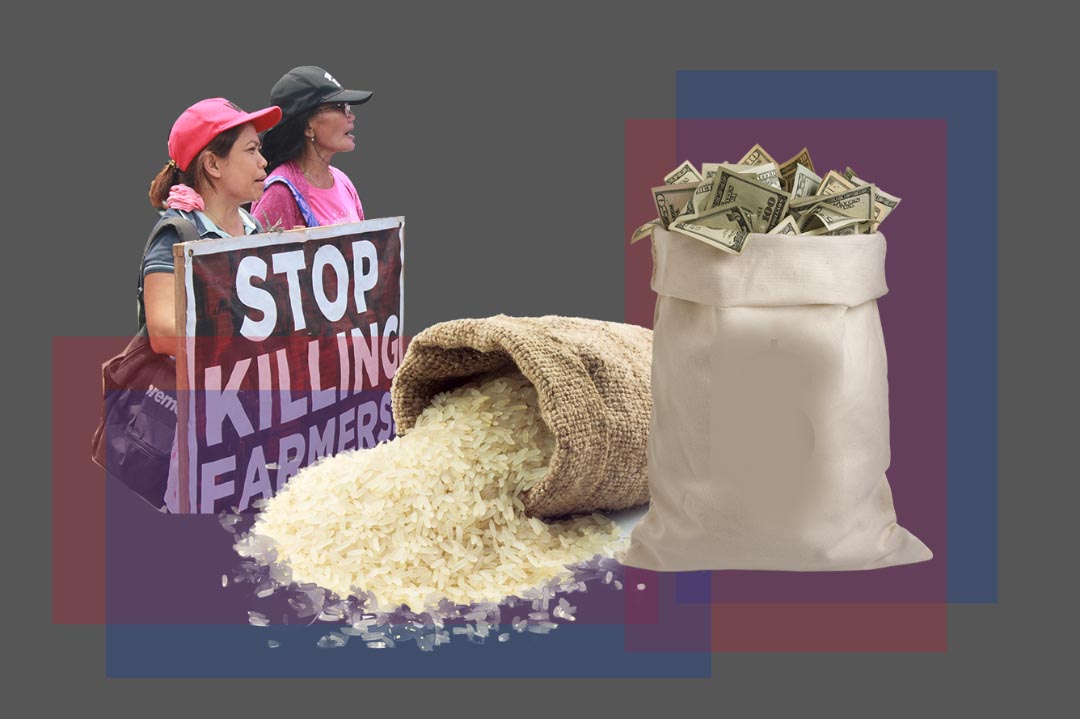BY JOHN AARON MARK MACARAEG
Bulatlat.com
MANILA — In his last harvest early September, Bernie Centeno from Lupao, Ecija wept as he read to Bulatlat the P12,000 deficit he got after selling his palay at a P12 per kilo. He only cashed in P48,000 from his 1.5-hectare farm despite shelling out over P60,000.
“I am now planning not to farm next season,” he said.
The high cost of inputs like pesticides, herbicides, insecticides and the mechanisms to irrigate his farm were the large chunks in his expenses.
In a nearby town of Licab, another farmer, Ignacio Ortiz experienced the same. He has not paid a loan worth P80,000. To survive, he works as a part-time carpenter.
“My father was a farmer, so I had to be one. But now, seeing the situation this livelihood put me in, my sons think of not pursuing the same. Because of fear that instead of inheriting our land, they would be getting debts instead,” said Ortiz.
Both have said that they did not get any help from the government.
Of the proposed P4.1 trillion national budget, P43.6 billion is allocated to the Department of Agriculture, an 18-percent increase from P36.7 billion last year. But one wonders, how much pesos will find its way to small farmers like Centino and Ortiz?
Agricultural development
Packaged in the proposed budget were special programs to support farmers.
This year, the Duterte administration has allocated P21 million for seed fund, P9.96 billion for farm-to-market road projects, and P1.33 billion for irrigation.
These special provisions in the national budget were also packaged last year, and the year before that. Yet, these are the ones farmers like Centeno and Ortiz were complaining that cover significant amount in their expenses.
Critics also pointed out the trend of budget cuts in each provision since 2018. Except for the fund in machineries, equipment, and facilities, most projects declined in funding which, according to them show how the current administration treats poorly programs for the agricultural sector.
The Rice Competitiveness Enhancement Fund (RCEF), which is allotted for farmers affected by the influx of rice imports due the Rice Tariffication Law, is pegged at P10 billion.
Rafael Mariano of Kilusang Magbubukid ng Pilipinas slammed it as nothing but another palliative. He said that even now that the farmers decry the falling farm-gate palay prices, the government continues to turn a blind eye.
Mariano said the P7-billion fund of the National Food Authority must be increased enough to buy at least 10 percent of the country’s palay output.
Subsidy, not loans
Meanwhile, Danilo Ramos, KMP secretary general, expressed dismay over government’s loans for farmers, saying they already have enough debts to pay for.
He said that what the farmers need are subsidy in seeds, pesticides, and free irrigation.
The group has previously criticized the Expanded Survival and Recovery Assistance Program for Rice Farmers (SUREAid) worth of P15,000 for bankrupted farmers last month.
Destroying agricultural lands
Ramos also expressed concern about the huge money the government put for its Build, Build, Build programs that will hit “prime agricultural lands” in Central Luzon and other agricultural regions.
The Duterte administration is set to finance P972.5-billion infrastructure projects in 2020. These include the MRT-7 project which will cover agricultural lands in San Jose del Monte, Bulacan and New Clark City in Pampanga.
“Land conversions of agricultural lands should be the least of the government projects as we are currently in the middle of food crisis,” said Ramos.
“We are not against progress, but what we need is a genuine development with the inclusion of the marginalized and not just for some,” said Ramos.
The national budget shows how the government prioritizes agencies or sectors and how they favor some over the others. For the food producers, the government does not look so good.
Now that a public official accepted the challenge of taking public transport amid the crisis, Centeno and Ortiz patiently wait for a Senator or any government official willing to abandon their paved subdivisions to stick their feet into rice paddles; because really, planting rice is no joke.
The post Agriculture budget not enough to help small farmers appeared first on Bulatlat.




